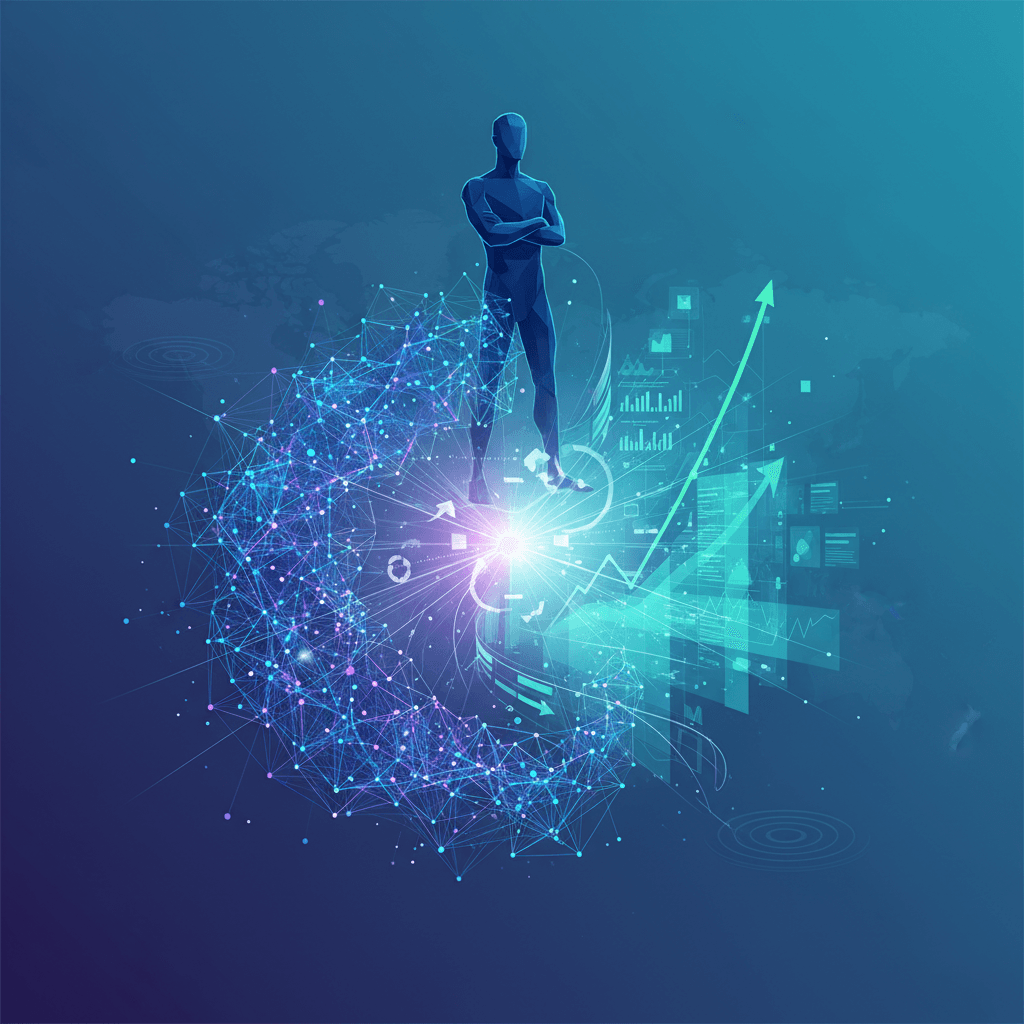OpenAI acquires Statsig, names Raji CTO to accelerate AI product development
OpenAI's $1.1B Statsig acquisition and CTO hire signal a data-driven push to quickly refine and scale AI products like ChatGPT.
September 2, 2025

In a significant strategic maneuver aimed at accelerating its product development capabilities, artificial intelligence leader OpenAI has acquired the analytics and experimentation startup Statsig.[1] Concurrent with the acquisition, Statsig's founder and CEO, Vijaye Raji, has been appointed as OpenAI's first Chief Technology Officer for Applications.[2][1] The deal, reportedly valued at $1.1 billion, signals a clear intent from OpenAI to bolster the iterative development and real-world deployment of its AI technologies, integrating a data-driven approach more deeply into its product lifecycle.[3][4] Raji will take over the technical leadership for key products like ChatGPT and Codex, reporting to Fidji Simo, the CEO of Applications, a move that underscores the company's focus on refining its user-facing tools and enterprise offerings.[3][4][5]
The acquisition is a natural evolution of an existing relationship, as OpenAI was already an active user of Statsig's platform to support its own product development.[6][4] By bringing Statsig in-house, OpenAI aims to more tightly integrate the startup's powerful tools for A/B testing, feature flagging, and real-time decisioning directly into its infrastructure.[7][6][4] This integration is expected to significantly speed up development cycles and allow for more rapid and reliable experimentation on models and features.[3][7] Statsig, founded in 2021 by former Facebook engineers, provides a sophisticated toolkit that empowers developers to test new features with specific user segments, control rollouts, and measure the precise impact of changes on key metrics.[8][7][9] The platform's ability to provide trustworthy, verifiable results and manage complex experiments is seen as crucial for navigating the challenges of deploying advanced AI systems safely and effectively.[8] For now, Statsig will continue to operate as an independent unit out of its Seattle office, serving its existing roster of clients which includes companies like Notion, Brex, and Microsoft, while its entire team joins OpenAI.[3][8][10]
The appointment of Vijaye Raji as CTO for Applications brings a seasoned technology leader with a formidable track record into OpenAI's executive ranks.[4] Raji's career spans two decades at the heart of Silicon Valley's most influential companies.[11][12] He spent ten years at Microsoft, where he worked as a Principal Software Design Engineer on foundational products like Windows and Visual Studio.[11][13][9] Following his tenure at Microsoft, Raji joined Facebook (now Meta), where he spent another decade in various high-impact leadership roles.[11][12] At Facebook, he led engineering for Messenger for Windows, Marketplace, and Groups Commerce, eventually rising to become the VP and Head of Entertainment and Head of Facebook Seattle, an office he helped grow to thousands of employees.[13][14] This experience in building and scaling both consumer and business products for massive user bases is directly applicable to the challenges OpenAI faces as it expands ChatGPT's reach and pushes further into the enterprise market.[15][4] His leadership is expected to be pivotal in transforming OpenAI's groundbreaking research into robust, scalable, and safe applications that can be deployed globally.[4]
This strategic acquisition and key executive hire carry significant implications for the competitive landscape of the artificial intelligence industry. By embedding Statsig's rigorous, data-informed development methodology, OpenAI is signaling a shift towards a more mature phase of product engineering, moving beyond pure research and model capability to focus on optimization and user experience.[8][16][17] This move addresses a critical need in AI development: the ability to quickly and safely iterate on non-deterministic systems where the impact of changes can be complex and unexpected.[17] The acquisition is also a clear talent grab in the midst of a fierce "talent war," securing not only Raji but also his entire team of specialists in product analytics and experimentation.[7] As AI companies vie for dominance, the ability to rapidly deploy, test, and refine products is becoming as important as the underlying power of their models. This acquisition provides OpenAI with a significant advantage in that race, equipping it with the infrastructure and expertise to build better products, faster, and to more effectively demonstrate the real-world value of its AI to an expanding base of consumer and enterprise customers.[15][18][19]
Sources
[6]
[9]
[10]
[11]
[12]
[13]
[14]
[15]
[16]
[17]
[18]
[19]